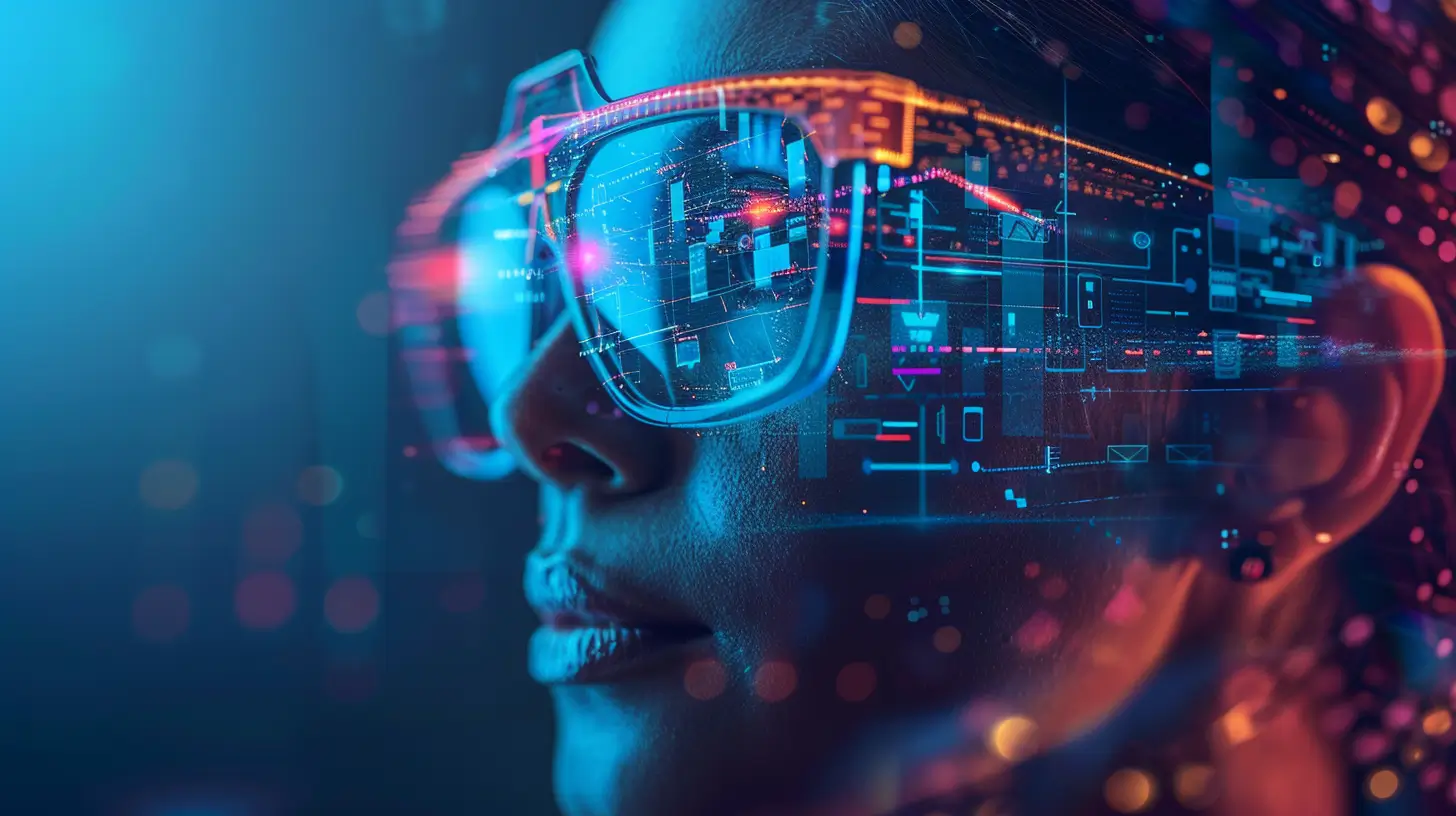AI Accessibility: What Are AI Assistive Technology Examples?
2024-05-29 | By Orcam Staff

AI is revolutionizing the world, and one of its most impactful applications is in assistive technology.
This technology is designed to enhance the lives of individuals with disabilities, breaking down barriers and opening up new possibilities.
AI assistive technology is a testament to tech innovation. It's a blend of smart technology and AI applications, creating solutions that were once unimaginable.
From AI-powered wheelchairs to speech recognition tools, these advancements are transforming lives. They're making the world more accessible, one innovation at a time.
In this article, we delve into the world of AI assistive technology. We'll explore its various applications, the latest advancements, and what the future holds.
Join us as we uncover the transformative power of AI in creating a more inclusive world.
The Emergence of AI Assistive Technology
The emergence of AI assistive technology is a testament to the power of AI solutions. It's a story of how tech innovation can transform lives and create a more inclusive society.
AI advancements have been instrumental in this transformation. They've enabled the development of assistive tech that can adapt to individual needs, learn from user interactions, and provide personalized assistance. This has opened up a world of possibilities for individuals with disabilities, enhancing their independence and quality of life.
Defining AI Assistive Technology
AI assistive technology refers to AI applications that are designed to aid individuals with disabilities. These AI tools leverage smart technology to provide assistance in various aspects of daily life, from communication and mobility to learning and healthcare.
The goal of AI assistive technology is to enhance accessibility and overcome barriers faced by individuals with disabilities. It's about harnessing the power of AI technology to create a more inclusive world, where everyone has the opportunity to participate fully and independently.
AI Assistive Technology in Daily Life
AI assistive technology is not a distant concept; it's already integrated into our daily lives. From smart homes to personalized learning, AI solutions are enhancing accessibility in various sectors.
Smart Homes and Independent Living
Smart homes equipped with AI technology are revolutionizing independent living for individuals with disabilities. AI-powered devices, such as voice-controlled lights and automated door locks, are providing increased independence and safety.
AI in Education: Personalized Learning
In the realm of education, AI is creating adaptive and personalized learning experiences. AI tools can tailor educational content to individual learning styles, particularly benefiting students with learning disabilities.
AI in Healthcare: Predictive Analytics and Monitoring
AI is also making strides in healthcare, providing predictive analytics for personalized intervention. AI assistive tech can monitor health conditions and provide timely alerts, enhancing the quality of care.
AI in Employment: Workplace Accommodations
In the workplace, AI assistive technology is facilitating accommodations for employees with disabilities. From speech recognition software to AI-powered mobility aids, these tools are opening up new employment opportunities.
Innovative AI Tools for Accessibility
The realm of AI assistive technology is marked by continuous innovation. Developers are constantly creating new AI tools to enhance accessibility and improve the quality of life for individuals with disabilities.
These AI solutions range from communication aids to mobility and visual aids, each designed to overcome specific barriers. Let's delve into some of these innovative AI tools.
Communication Aids: Speech and Language Processing
AI plays a crucial role in enhancing communication for individuals with speech or language impairments. Speech recognition and generation technologies, powered by AI, are transforming communication aids.
These tools can convert speech to text, generate synthetic speech, and even predict text, enabling more effective and efficient communication.
Mobility Aids: Smart Prosthetics and Wheelchairs
AI is also revolutionizing mobility aids. Smart prosthetics and wheelchairs, equipped with AI technology, are providing unprecedented mobility solutions.
These AI-powered devices can adapt to the user's movements and environment, offering a higher degree of independence and control.
Visual Aids: Object Recognition and Navigation
For the visually impaired, AI is enhancing visual aids through object recognition and navigation technologies. These AI tools can identify and describe objects, read text aloud, and provide navigation assistance.
By doing so, they are helping individuals with visual impairments navigate their surroundings with greater ease and confidence.
Ethical Considerations and User-Centered Design
The deployment of AI assistive technology brings with it a host of ethical considerations. Data privacy and security are paramount, given the sensitive nature of the information these AI tools handle.
Moreover, the design of these AI solutions must be user-centered. It's crucial to involve users, disability advocates, and caregivers in the design process to ensure the technology truly meets the needs of those it's intended to assist. This collaborative approach can lead to more effective and inclusive AI assistive tools.
The Future of AI Assistive Technology
The future of AI assistive technology holds immense potential. With continuous advancements in AI and machine learning, we can expect more sophisticated and personalized assistive solutions. These advancements could augment human abilities beyond disability assistance, transforming the way we interact with the world.
However, the future also presents challenges. Ensuring universal access to these technologies and bridging the digital divide for people with disabilities will be critical. As we move forward, it's essential to keep these considerations in mind to create a more inclusive future.
Conclusion: The Impact of AI on Accessibility
AI assistive technology is revolutionizing accessibility. It's not just about overcoming barriers; it's about enhancing capabilities, fostering independence, and improving quality of life.
As we continue to innovate, we must ensure these technologies are accessible to all. The future of accessibility is here, and it's powered by AI.



